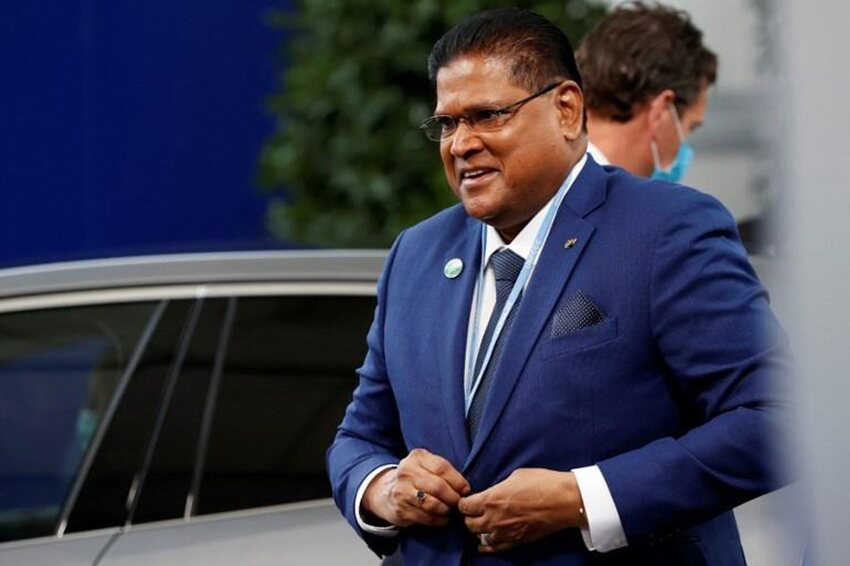Chan Santokhi, the president of Suriname – one of the Netherlands' former colonies – said that he has taken "good note" of the apology offered by Dutch Prime Minister Mark Rutte for the country's slavery past, but did not hide his dissatisfaction with the Dutch Government's approach.
Rutte's apology, on behalf of the Dutch Government, had been preceded by weeks of friction, local media report. In particular, there was dissatisfaction about the date for the apology: according to those involved, it should have happened on 'Keti Koti' (1 July), the day when the abolition of slavery is celebrated annually.
"The slavery past is a dark page in our history and a joint approach from the beginning would have been more plausible to work together towards a moment of honour and reparation," Santokhi said in a statement. "Indeed, making the preparations for apologising is as important as actually apologising in practice."
"We are talking about centuries of oppression and exploitation. Therefore, offering apologies also means taking into account momentum, cultural aspects of the descendants of the enslaved, and the significance of the right moment for apologies," his statement reads. Earlier, Santokhi had also expressed that the slavery past and apologies should be handled very carefully and that "all parties involved should be heard."
'Clear and unequivocal'
In his speech on Monday, Rutte underlined that between 600,000 and over 1 million people were shipped from several countries across Africa to America by the Dutch since the 17th century and traded in appalling conditions. "The numbers are unimaginable, the human suffering behind them even more inhuman. They were torn away from their families, dehumanised, treated like cattle."
"For centuries, the Dutch state and its representatives have enabled, encouraged, maintained and benefited from slavery. For centuries people have been commodified, exploited and mistreated in the name of the Dutch state," he said. "For that I, on behalf of the Dutch government, apologise."
Despite his criticism of the Dutch approach, Santokhi also acknowledged that Rutte's speech was "clear and unequivocal," in particular "regarding the Dutch involvement in the inhumane treatment of persons who were forcibly brought to Suriname over a long period of time to work as slaves, performing work for the Dutch economy."
Related News
- Congo Committee: Belgium fails to reach agreement on official apology for colonialism
- Colonial human skulls will not be auctioned in Brussels after protests
- Congo Committee calls for apologies but not reparations for Belgium's colonialism
The Dutch apologies came on the same day that in Belgium, the chair of the country's special committee on the colonial past, Wouter De Vriendt, announced that Federal MPs had failed to reach an agreement on officially apologising to the Democratic Republic of Congo (DRC), Burundi and Rwanda for the colonial regime based on domination and exploitation.
Out of the 128 committee proposals for reparation, article 69 – in which parliament apologises for its colonial past – proved to be the biggest stumbling block, as many parties fear that offering official apologies for Belgium's wrongdoing instead of simply expressing regret over the atrocities that happened – as King Philippe did during his visit to the DRC in June – could open the door to a Congolese demand for financial reparations.
"Now was the time to put political interests aside for a while, but that did not happen sufficiently," De Vriendt said. "There was insufficient willingness to look for a compromise within the Federal Government, and the distance between the opposition groups was great. In terms of apologies, that distance even proved unbridgeable.

